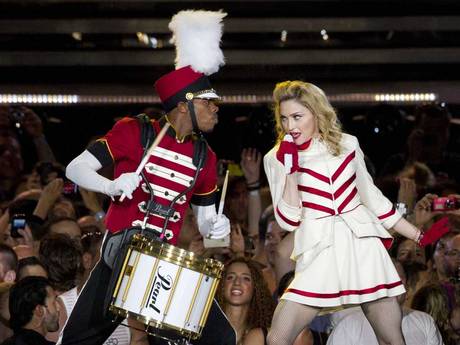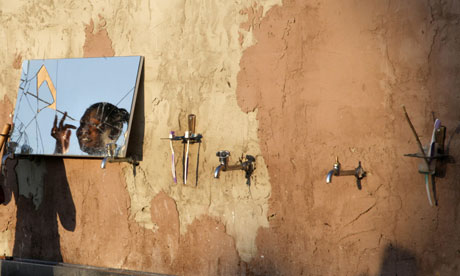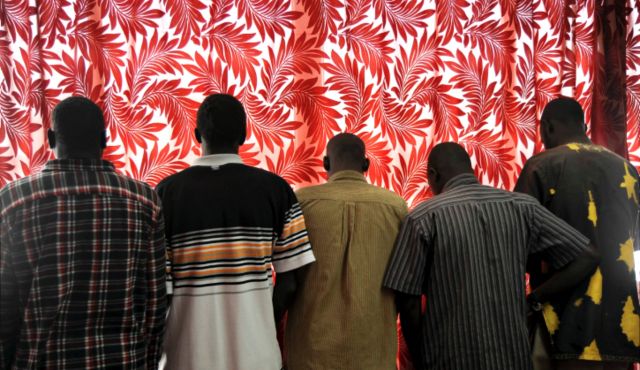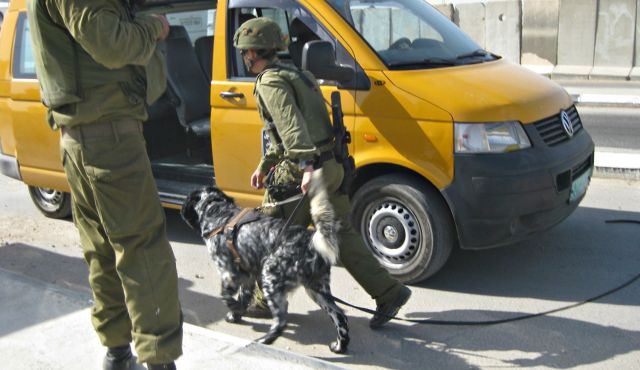EDITOR: The Boycott is spreading, as is the consciousness
Israel is no longer the object of love and admiration it has been for so long amongst those who were unaware of its brutal activities – the terrifying attack on Lebanon in the summer of 2006 in which more than 1500 Lebanese civilians were killed, the bloody attack on Gaza starting on December 28th, 2008, and continuing for almost a month, with over 1440 civilians murdered, the Flotilla attack in which 9 Turkish volunteers were butchered in cold blood, the many race riots against black refugees which have started last months and are still continuing – all these have brought to public view the brutality, lawlessness and inhumanity of the Israeli occupation regime. To have replaced apartheid South Africa in the public’s mind is indeed an achievement…
Israel is new South Africa as boycott calls increase: Independent
After Madonna began her world tour there last week, campaigners urge cutting of cultural ties
JONATHAN OWEN SUNDAY 03 JUNE 2012

Some of the world’s biggest stars – from Madonna to the Red Hot Chili Peppers – are being accused of putting profit before principle in a growing backlash against artists performing in Israel.
Campaigners angry at human rights abuses against the Palestinian people – symbolised by Israel’s policy of demolishing the homes of Palestinians and allowing Israeli settlers to take over their land – are demanding a boycott of Israeli venues in a campaign that echoes the 1980s protests against South Africa and the infamous venue Sun City.
Last week Madonna came under fire for her decision to perform in Israel to kick off her world tour last Thursday. “By performing in Israel, Madonna has consciously and shamefully lent her name to fig-leafing Israel’s occupation and apartheid and showed her obliviousness to human rights,” said Omar Barghouti of the Palestinian Campaign for the Academic and Cultural Boycott of Israel.
Attempts by Madonna to deflect criticism by offering free tickets to local campaigners backfired, with a number rejecting the offer. Boycott from Within, an Israeli campaign group, accused the singer of “a blatant attempt at whitewashing Israeli crimes”. Mr Barghouti added: “As we’ve learned from the South African struggle for freedom, entertaining Israeli apartheid should never be mislabelled as singing for peace.” The star’s publicist did not respond to requests for comment.
Acts such as alleged war crimes during Israel’s 2008 invasion of Gaza and the 2010 killing of peace activists by Israeli commandos on an aid ship are fuelling the return of an anti-apartheid campaign on a scale not seen in a generation. Saeed Amireh, 21, a peace activist from Nilin in the West Bank, said: “We don’t have freedom of movement. They don’t want peace; they just want us to disappear. They are suppressing our very existence.”
Calls for a boycott are supported by hundreds of artists around the world, from the film director Ken Loach to former Pink Floyd frontman Roger Waters and the author Alice Walker. Artists such as Carlos Santana and Elvis Costello have cancelled shows after pressure from campaigners in recent years; Coldplay, U2 and Bruce Springsteen have declined invitations to play in Israel without supporting the boycott publicly. Paul McCartney, Elton John, Rihanna and Leonard Cohen are among those to have ignored calls not to appear there.
The Red Hot Chili Peppers, Lenny Kravitz and Guns N’ Roses plan to play in Israel this year, prompting the campaign group Artists Against Apartheid to appeal: “As was done in the case of South African apartheid, please join us now in the cultural boycott of Israel, and help stop entertaining apartheid.” The campaign has rattled the music industry, prompting a group of US-Israel entertainment executives to set up the Creative Community for Peace last year in an effort to counter the cultural boycott.
It is also troubling senior Israeli politicians: a law passed by the Knesset last year means that people who call for a boycott could be sued in court. The Israeli government has also set up a committee to look at how to compensate Israeli promoters in the cases of “politically motivated cancellations”.
Controversy over Israel’s treatment of Palestinians has provoked protests among actors, too. Emma Thompson is among more than 30 actors, directors and playwrights who condemned the Globe Theatre for including Israel’s national theatre company in its Shakespeare festival last week.
The Israeli embassy this weekend dismissed criticisms of Israel as “an anti-Israeli movement” and the Board of Deputies of British Jews claimed comparisons with apartheid-era South Africa were “a specious and desperate effort by a failing boycott campaign”. Nevertheless, Israel’s President Shimon Peres admitted earlier this year: “If Israel’s image gets worse, it will begin to suffer boycotts. There is already an artistic boycott against us and signs of an undeclared financial boycott are beginning to emerge.”
The Co-op announced a boycott of goods from West Bank settlements last month.
Far-right Europeans and Israelis: this toxic alliance spells trouble: Guardian
Migrants everywhere need to be wary when European fascists and far-right Israeli nationalists use the same racist rhetoric
Rachel Shabi
guardian.co.uk, Wednesday 6 June 2012

Last month, demonstrations against African refugees in Tel Aviv turned violent. Protesters looted shops, broke windows and firebombed buildings, including a nursery. Days ago, arsonists torched the home of 10 African migrants in Jerusalem, injuring four, and leaving the unequivocal graffiti: “Get out of the neighbourhood.”
On Monday, Israeli TV reported that Haifa’s council had warned local businesses that they risked losing their licences if they employed African refugees, and that shopkeepers in the southern town of Sderot were refusing to serve migrants. Israeli statistics show some 60,000 African migrants have entered the country in the past seven years through the Egyptian Sinai desert – many of them asylum seekers fleeing repression or war in Sudan, South Sudan and Eritrea. Israel, much like Europe, seems consumed with worry about being “swamped” by developing-world refugees – although, perhaps in part because of its location, the fears in Israel sound more visceral. So far, Israel’s approach has been to build a steel fence on the Egyptian border and a giant detention centre in the south, and to pass a law that allows the detention of migrants for up to three years. Since its creation, fewer than 150 people have been recognised as refugees in Israel.
The crude response from politicians has been as disturbing as the scenes on the streets. Last week, the interior minister, Eli Yishai, said: “Most of those people arriving here are Muslims who think the country doesn’t belong to us, the white man.” He has also described the refugees as rapists and criminals. Weeks ago, Miri Regev, a Likud member of the Knesset, referred to Sudanese people in Israel as a cancer. Former TV presenter and emerging politician Yair Lapid last month lambasted some Knesset members as “inciters” leading a pogrom, and wrote: “I wonder how they have the nerve to call themselves Jews.”
The sight of Jewish Israelis – sons and daughters of refugees – echoing, pretty much window-smashing act by act and racist line by line, scenes from historic anti-Jewish pogroms in Europe, isn’t an easy one. Nor is the uncomfortable reality that hatred of refugees is so easily stoked in Israel. Having for years practised a policy of separation between Jews and subjugated Palestinians both in the occupied territories and within Israel, the country has incubated a form of casual racism and puritanical appraisal of the “other”, in which anti-migrant sentiments can flourish. Last month, the Israeli historian and commentator Tom Segev told AP: “What disturbs me most is the racist atmosphere. For several years now, Israel society has been moving in that direction.” At one protest against migrants last year, an Israeli demonstrator explained her hostility: “They aren’t Jews. Why should they be here with us?” The language itself is a giveaway: protesters, politicians and reporters alike have labelled African refugees as infiltrators – the same fear-inducing, security-conscious term used to describe Palestinians. No wonder, then, that the Prevention of Infiltration Law, introduced during the 1950s to stop Palestinian refugees returning, has just been amended to apply to Africans.
Meanwhile, gut-level anxiety over demographics are everywhere – rabbis and ministers are warning that migrants, just like Palestinians, will use a sort of birth-rate-bombing tactic in Israel, outnumbering the Jewish population and thereby sinking the nation.
The rhetoric may be ramped up, but far-right Israeli ministers are basically repeating the anti-immigration, anti-Muslim sentiments of rising far-right parties in Europe. That isn’t a coincidence because, perversely, the two have recently found common cause. In the past few years, Israeli ministers have played host to far-right European leaders and made clear the shared values on the supposed menace of Islam and (especially Muslim) migrants. Geert Wilders, leader of the Dutch Freedom Party, is one of several far-right figures to have visited Israel and met hard-right ministers there. During one trip, Wilders met the foreign minister, Avigdor Lieberman, and spoke of Israel as a front line in the fight to counter Islam. “If Jerusalem falls,” he warned, “Amsterdam and New York will be next.”
This affiliation is great news for Europe’s far-right parties, who seek to sanitise their image, and whose history of antisemitism has been a block to gaining mainstream acceptability. The Institute for Strategic Dialogue, a research group, has warned that far-right parties in Europe are on the rise in part because they’ve opportunistically buried antisemitism in favour of an apparently more palatable stance against Islam and Muslim migrants. How lucky for them that Jewish Israeli politicians are helping them with that.
No doubt it’s comforting for Israel’s far right to find allies that lip-synch claims of a frontier battle. But when the people who perfectly understand you are also the ones with a history of violently hating you, it’s time to worry about what exactly is in this relationship. Israel’s current attacks on African refugees are bad enough, but if this outbreak even partly signals a dovetailing agenda between European fascists and far-right Israeli nationalists, that’s a toxic arrangement – and trouble for migrants, Muslims and Jews everywhere.
Jerusalem court sanctions deportation of South Sudan nationals from Israel: Haaretz
Some 1,000 South Sudanese are believed to be in Israel, part of a larger influx of African migrants who have poured into the country in recent years; Yishai says court ruling is first of many such steps.
By Oz Rosenberg and Dana Weiler-Polak Jun.07, 2012

The Jerusalem’s District Court ruled on Thursday that Israel could deport South Sudanese nationals back to their county, thus rejecting an appeal by migrant worker NGOs against a decision by Interior Minister Eli Yishai to halt Israel’s collective defense of citizens form the war-torn country.
Yishai said in response to the ruling that he “congratulates the court’s decision, one allowing the deportation of about 1,500 infiltrators who had arrived from South Sudan,” adding he “hopes this is the first step in a series of measures allowing us to deport [migrants] from Eritrea and North Sudan.
Some 1,000 South Sudanese are believed to be in Israel, part of a larger influx of African migrants who have poured into the country in recent years. Some are refugees, while others are seeking employment.
Major violence between Sudan and South Sudan has flared recently, pushing the region to the edge of all-out war, according to news reports.
Speaking in response to the court’s ruling, Khaled, a South Sudanese national who has been residing in Israel with two of his children since 2007, said: “I really don’t know what to do.”
“It’s sending people and families to a dangerous place. I’m afraid to go back there with the kids, will they have a future in such place?” he added, saying that he didn’t think he would to hide from authorities. “It isn’t practical, I have two underage kids, I don’t want to do that to them.”
The NGOs who had submitted the court appeal also responded to the decision, saying they “regret the ruling” and “fear for the safety and wellbeing of the deportees, especially the children due to be send to a dangerous place.”
The Jerusalem court’s decision came after, late last month, Attorney General Yehuda Weinstein told the court that there is no reason to prevent the deportation of South Sudanese citizens to their country of origin, as South Sudan is safe enough for them to return home.
Weinstein based the remarks on a foreign ministry report on the economic and security conditions in South Sudan, and on the possibility of deporting migrants to the country.
According to Weinstein’s remarks, the situation in South Sudan does not provide grounds to fear for the lives and physical safety of migrants who are returned to the country.
The attorney general also said that asylum applications of South Sudanese citizens will be examined individually, based on the Refugee Convention.
Weinstein’s announcements came amid mounting tensions over the issue of African migrants in Israel.
Last week an anti-migrant protest turned violent, with some 1,000 protesters in Tel Aviv’s Hatikva neighborhood calling for the ousting of African asylum seekers from Israel. Demonstrators attacked African passersby while others lit garbage cans on fire and smashed car windows.
A further anti-migrant rally is planned in south Tel Aviv on Wednesday.
At last weeks demonstration, the crowd cried “The people want the Sudanese deported” and “Infiltrators get out of our home,” and a number of MKs addressed the crowd. Likud MK Miri Regev told protesters that “the Sudanese are a cancer in our body.” Regev apologized over the remarks on Sunday.
Prime Minister Benjamin Netanyahu condemned the actions of demonstrators, and MKs who were present at the rally, and promised that his government would address the issue of African migrants in Israel.
Israeli soldiers use Palestinians to train army dogs, activist says: Haaretz
Report claims IDF troops order West Bank residents to exit cars and wait, as dogs seek training explosive devices; army spokesman: Soldiers conduct searches to increase Israelis’ safety.
By Amira Hass Jun.07, 2012

Soldiers from an elite IDF canine unit have been confiscating Palestinian vehicles in order to train their explosive-detecting dogs, an activist monitoring the conduct of soldiers in checkpoints told Haaretz.
The unit in question is Oketz, directly subordinate to IDF command, and which, among other duties, trains dogs to locate weapons and explosives. Its training base is located in the Adam base west of Ramallah.
According to Tamar Fleischman, Oketz soldiers have been randomly stopping Palestinian vehicles in the last few weeks as they pass through the Jaba checkpoint, near the city of Ramallah.
The soldiers then reportedly order the passengers to exit and display their identification cards, with one soldier positioned with his weapon aimed at the Palestinians.
At that point, Fleischman said, a dog handler places an object inside the vehicle, which the dog is then sent to find, an receiving a treat upon its retrieval. The passengers then receive their IDs, and are allowed to return to the vehicle. The entire process usually takes around ten minutes.
Earlier this week, Fleischman reported that in one such session the dog was unable to locate the hidden object, prompting a soldier to crawl through the vehicle until it was found, with the passengers looking on as another soldier pointed his rifle at them.
According to Breaking the Silence, an NGO, which collects the testimonies of IDF soldiers serving in the occupied territories, the training of Oketz personnel and dogs using Palestinian vehicles has been performed in the past as well.
One testimony, given by a female dog handler, relates to the period from 2007 to 2009. She said that the soldiers were present at the checkpoints “only to train the dogs.”
“We hide something in the case…like a [rifle] magazine. In the unit we use something called a snapir [fin], a stainless steel canister holding explosives held in a net, that keeps material, but allows scent to filter out,” she said, adding that the container holds the blast in case it’s dropped, “so no one can get hurt.”
The past dog handler said that Oketz soldiers take the vessel with them “to the checkpoints, and hide it in Palestinian vehicles and then the dog looks for it…. The justification for the action is ‘deterrent,’ the passengers don’t know we’re really not inspecting the vehicle.”
“This happens all year, even if it’s raining outside,” she said.
According to testimonials, the training isn’t time-bound, with sessions sometimes lasting for an hour, sometime three.
In one instance, three of four dogs were loaded onto a pickup truck, and driven to a checkpoint near the Adam base. At the Na’alin checkpoint, used by both Israelis and Palestinians, soldiers would stop “every Arab passing by, even if his wife was giving birth.”
“Countless settlers pass through there, but you would never inspect those vehicles, she said, adding that the dog handlers made sure to ask the passengers to remove Korans and prayer rugs from the vehicles, as they they would not be defiled by the dogs.
Speaking to Haaretz, Fleischman said that dog handlers have attempted to prevent her and other activists from filming the process from the other side of the checkpoint. In one instance, they did film, but the soldiers yelled out that they were being put at risk, adding that they had security clearance. They then stopped the training, and put the dog into a special cage, releasing him and resuming the session once Fleischman and the other activists walked away.
The IDF Spokesman’s Office said in response that “following the appeal, the issue will be thoroughly examined. As a rule, the IDF conducts inspections in West Bank checkpoints as part of its routine activity, in an attempt to ensure the safety of Israel’s citizens.”